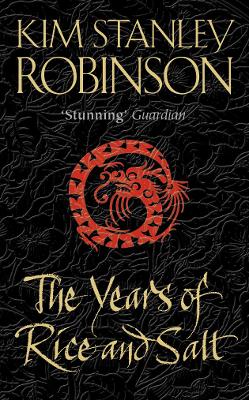Reviewed by nannah on
Sorry, I just couldn't do it. I hate not being able to finish books, but this was just an agonizingly slow, painful, and difficult read.
It starts with such an intriguing concept: the Black Plague actually killed off 99% of Europe's population instead of just a third, and in place of Christian Europe rose an alternate history where Asian cultures and religions dominate. Unfortunately that's where my fascination with the book ends.
There are two souls in the book that seem bound together, and they meet in the afterlife countless times only to be reborn again, meet, die, etc. At first I loved that concept (especially because I believe in reincarnation), but I expected there be an actual point to the meeting and intertwining of these two souls. Instead, what I seemed to have gotten was an atmospheric book giving me snapshots of this alternate history: a book of short stories without any overall story arc. Looking through some reviews here, it doesn't seem that the book ever comes together with any kind of arc, and slogging through these (often) tedious little short stories became unbearable. Especially since the telling of them was only summary after summary. The language at times was so dull and academic I couldn't understand what I was reading.
I hate giving up on books, especially diverse books, but I just couldn't do this one.
Reading updates
- Started reading
- 1 February, 2017: Finished reading
- 1 February, 2017: Reviewed
